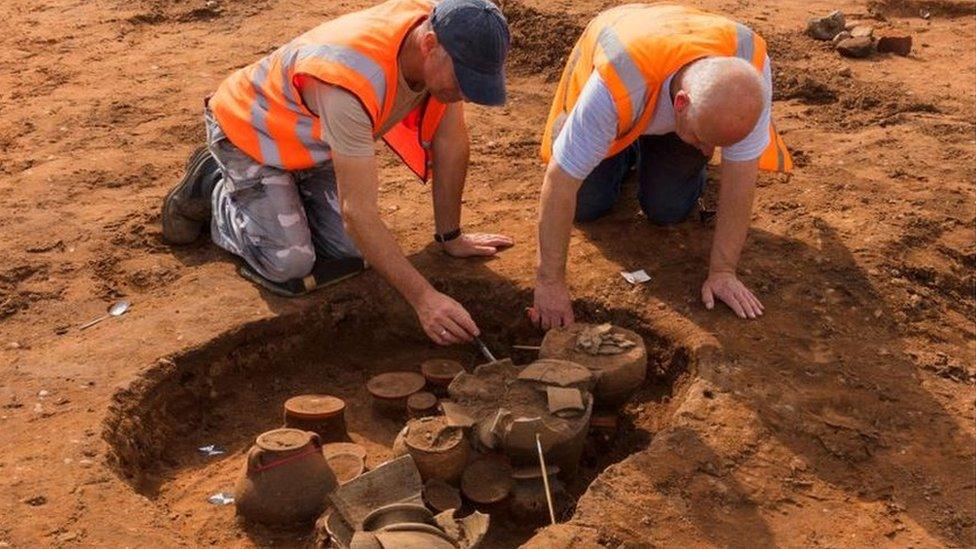Rare Roman gaming piece found on Chester building site
- Published
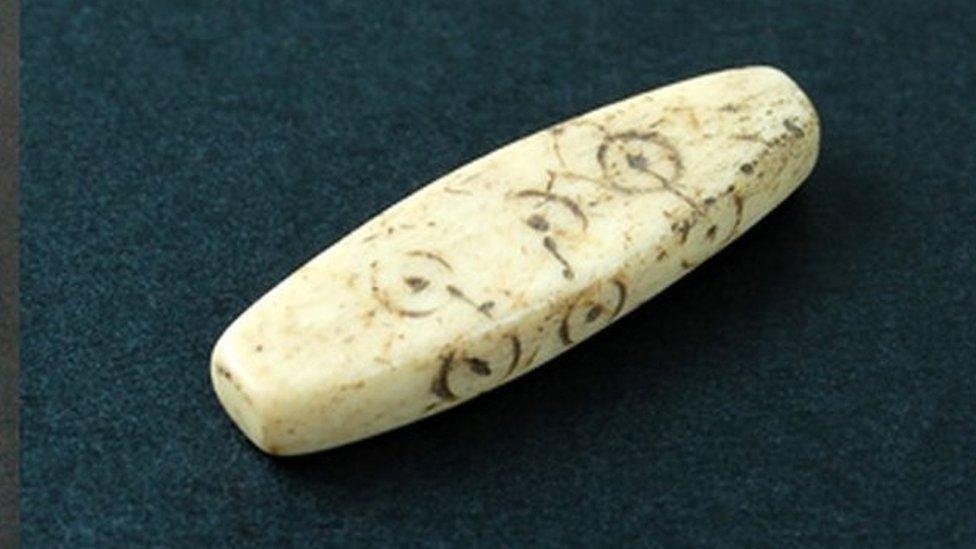
The piece was used for a game played by Roman soldiers
A rare Roman gaming piece has been discovered by archaeologists working alongside council workers on the Northgate development in Chester.
The artefact, made from bone, was found with other Roman relics including a comb, a possible spearhead and a pin or broach.
Andrew Davison, Inspector of Ancient Monuments from Historic England, said the finds "will excite great interest."
They will be added to a collection of Roman relics at a local museum.
The lozenge-shaped gaming piece, just over an inch long (29mm), is highly polished, probably from use, and features a common Roman ring and dot motif.
Experts link it to Ludus Latrunculorum, meaning the Game of Mercenaries - a two-player military strategy board game played throughout the Roman Empire, similar to draughts.
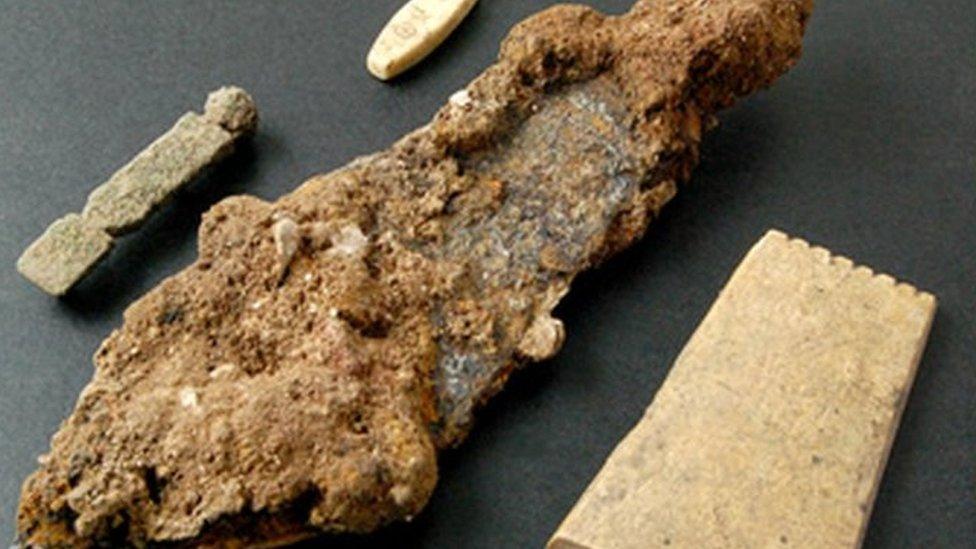
Several artefacts have been found at the site
A council spokesman said finding it in part of a legionary barracks in Chester would back up this theory.
The finds were discovered as a result of deeper trenches being dug for new drains on the scheme which includes a new market hall, cinema and restaurants due to open in two years time.
Contractor VINCI Construction UK and archaeologists Oxford Archaeology, have been carefully excavating the site for signs of Roman life and other historical artefacts, said Cheshire West and Chester Council.
Councillor Richard Beacham said: "We will be treading very carefully to protect the sensitive archaeological remains on the site and we will be adding anything we find to our impressive collection of Roman artefacts at the Grosvenor Museum."
The Romans founded Chester as a fort, Deva Victrix, in AD70 during a drive into the north of England, according to ancient cartographer Ptolemy.
It was named Deva either after the goddess of the Dee or directly from the British name for the river with the 'victrix' drawn from the Legio XX Valeria Victrix which was based at the fort.
- Published17 January 2020
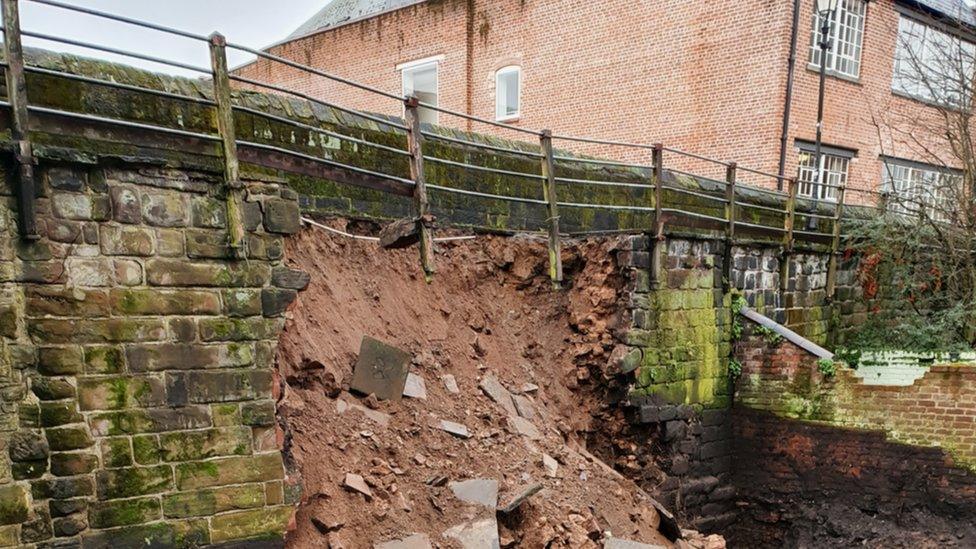
- Published28 December 2019
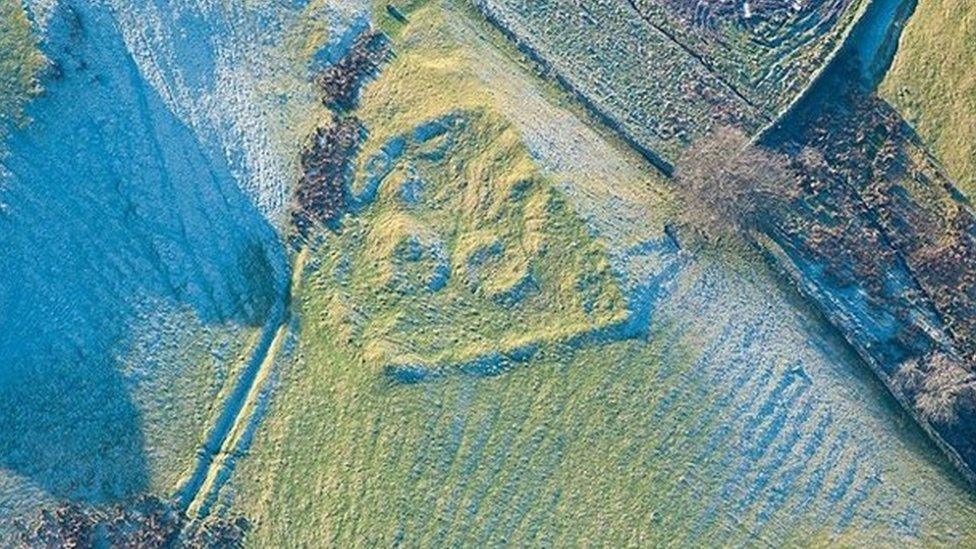
- Published23 January 2020
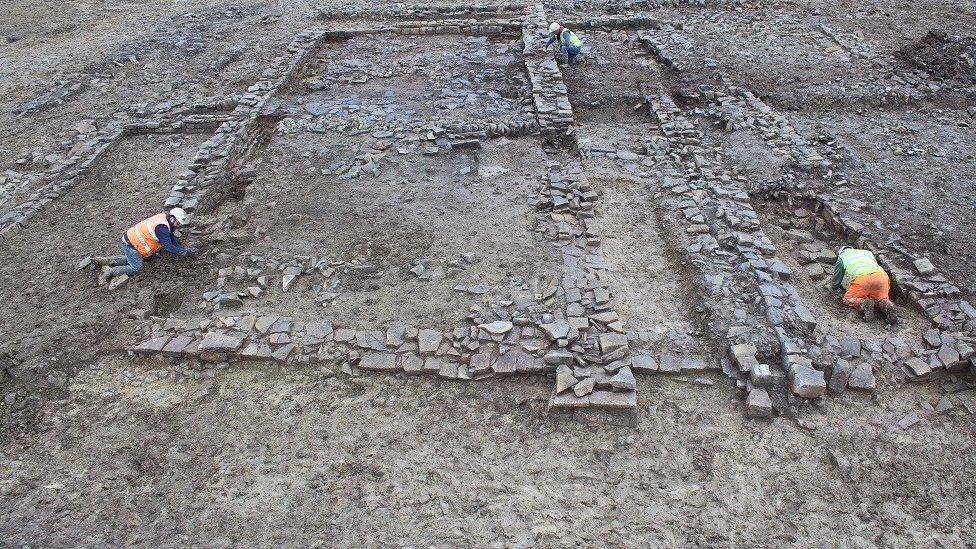
- Published25 December 2019
